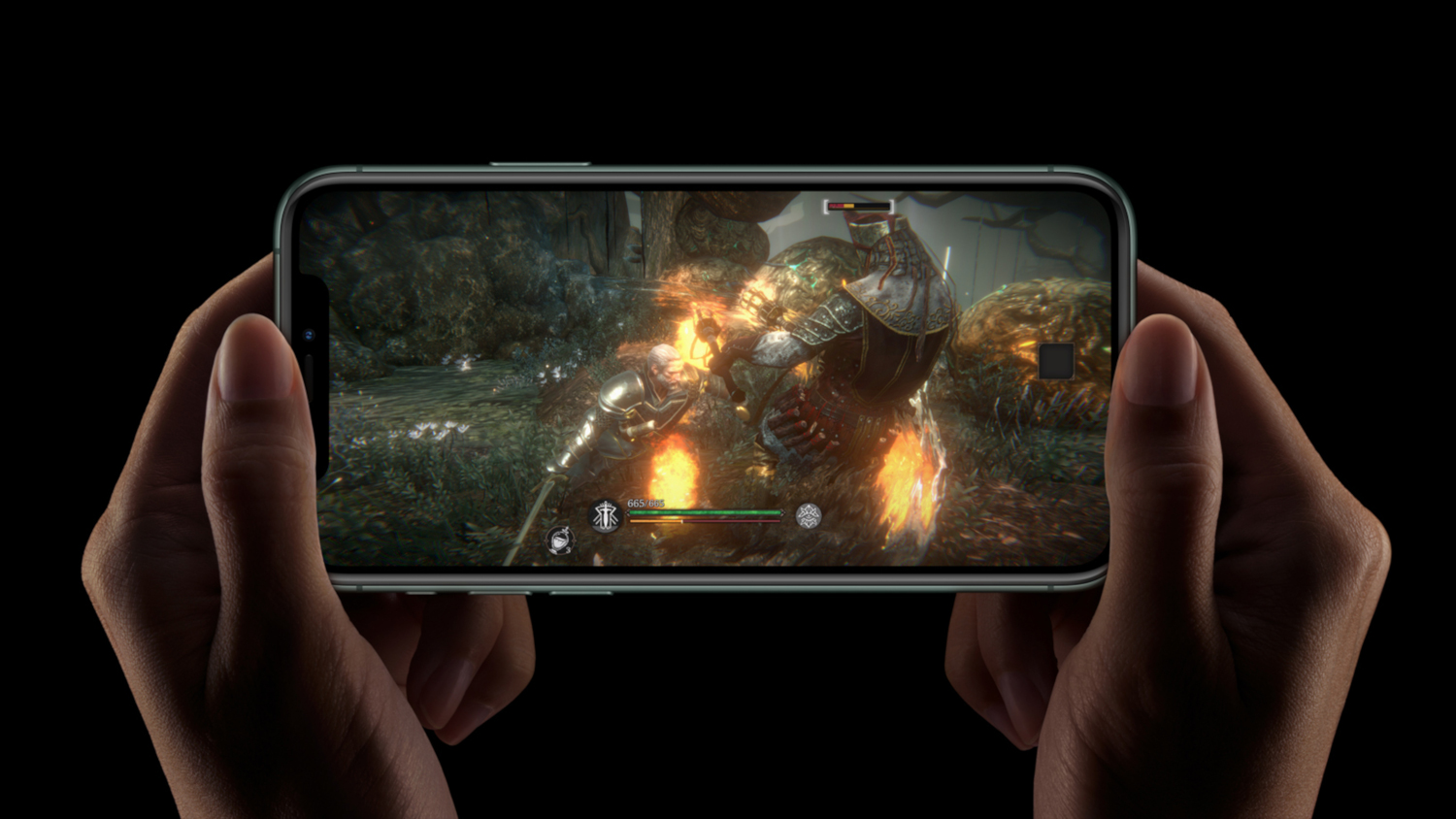Apple's New A13 Bionic CPU to Power iPhone 11 with Longer Battery Life, Higher Speeds
Apple today announced the iPhone 11 and iPhone 11 Pro. The devices boast many new features, but perhaps the most interesting revelation was the A13 Bionic system-on-a-chip, which led the company to claim the new iPhones have the fastest CPU and GPU of any smartphone.
Much of the new chip's design was focused on reducing its power draw. The A13 Bionic's CPU features two high-performance cores with 20% faster performance and 30% lower power requirements than previous generations. Four high-efficiency cores, meanwhile, are 20% faster and require 40% less power. Apple said these cores are capable of performing more than 1 trillion operations per second.
Similar changes were made to the A13 Bionic's GPU: Apple said it was optimized for the Metal framework, boasts four cores, offers 20% faster performance and requires 40% less power than its predecessor. Both the CPU and GPU are complemented by a new Neural Engine made specifically for machine learning; Apple said this part of the chip boasts eight cores, is 20% faster and needs 15% less power.
These optimizations could be partly attributed to Apple reportedly having TSMC make the A13 Bionic with its second-generation 7nm process, which is its first to use extreme ultraviolet (EUV) lithography. That switch to a new process resulted in a greater transistor count, and the increased density would lead to higher performance, as well as changes to the chip's power requirements.
Those changes are said to add one hour of battery life to the iPhone 11 compared to the iPhone XR; the iPhone 11 Pro is rated to last four hours more than the iPhone XS. (Other changes would affect battery life, too, but Apple attributed much of these improvements to the A13 Bionic.) They also enable many of the new features in the latest-generation iPhones, including advanced photo and video editing tools.
We wouldn't be surprised if the A13 Bionic reaches new iPad models in the coming months. The A12 Bionic had a similar release path--it debuted in the iPhone XS last year before reaching the updated iPad mini and iPad Air earlier this year. Apple released the A12X Bionic with the iPad Pro in 2018, too, so it's possible that a variant of the A13 Bionic is set to debut when the company refreshes that lineup.
Apple said it plans to open iPhone 11, iPhone 11 Pro and iPhone 11 Pro Max pre-orders on September 13 at 5am PT. Prices start at $699 for the iPhone 11 and reach $1,099 for the base configuration iPhone 11 Pro Max. More information can be found on Apple's website.
Get Tom's Hardware's best news and in-depth reviews, straight to your inbox.

Nathaniel Mott is a freelance news and features writer for Tom's Hardware US, covering breaking news, security, and the silliest aspects of the tech industry.
-
bit_user Why are the comments on Mott's articles always broken?Reply
At least, it seems to take a day or so for the comments links to appear, whereas other articles have them right away.
